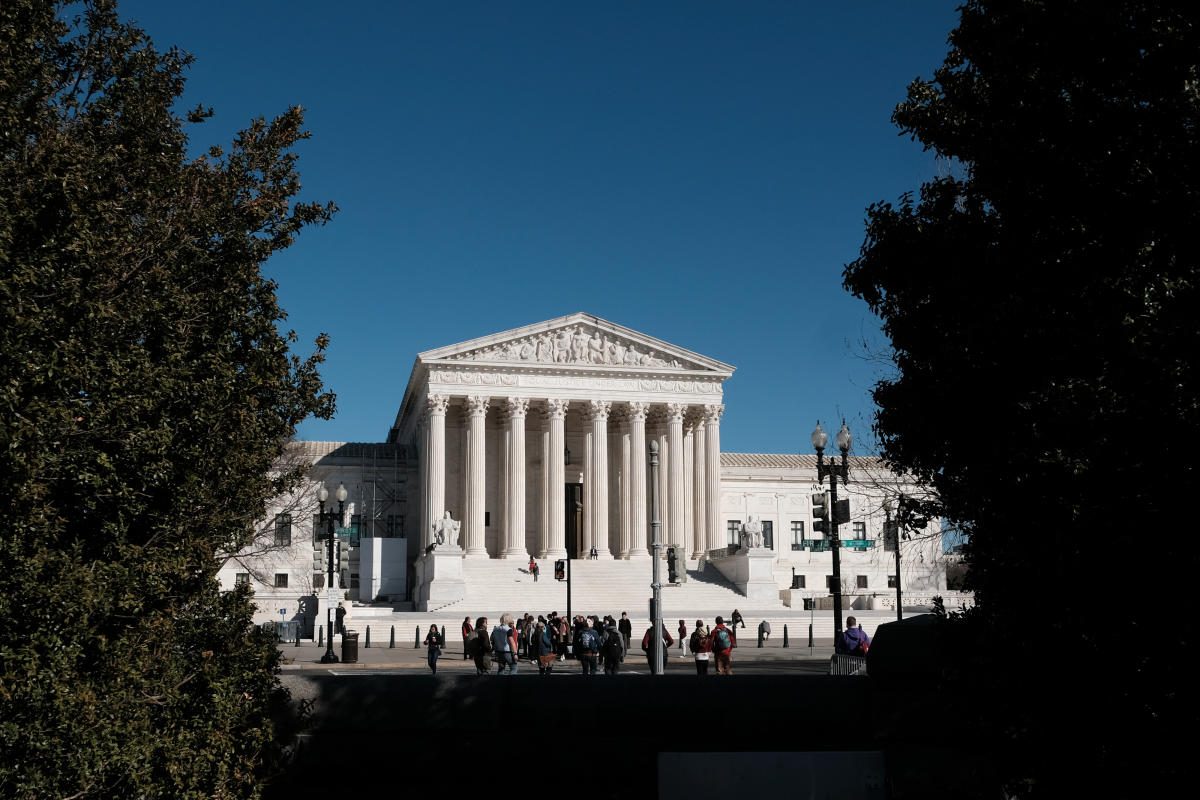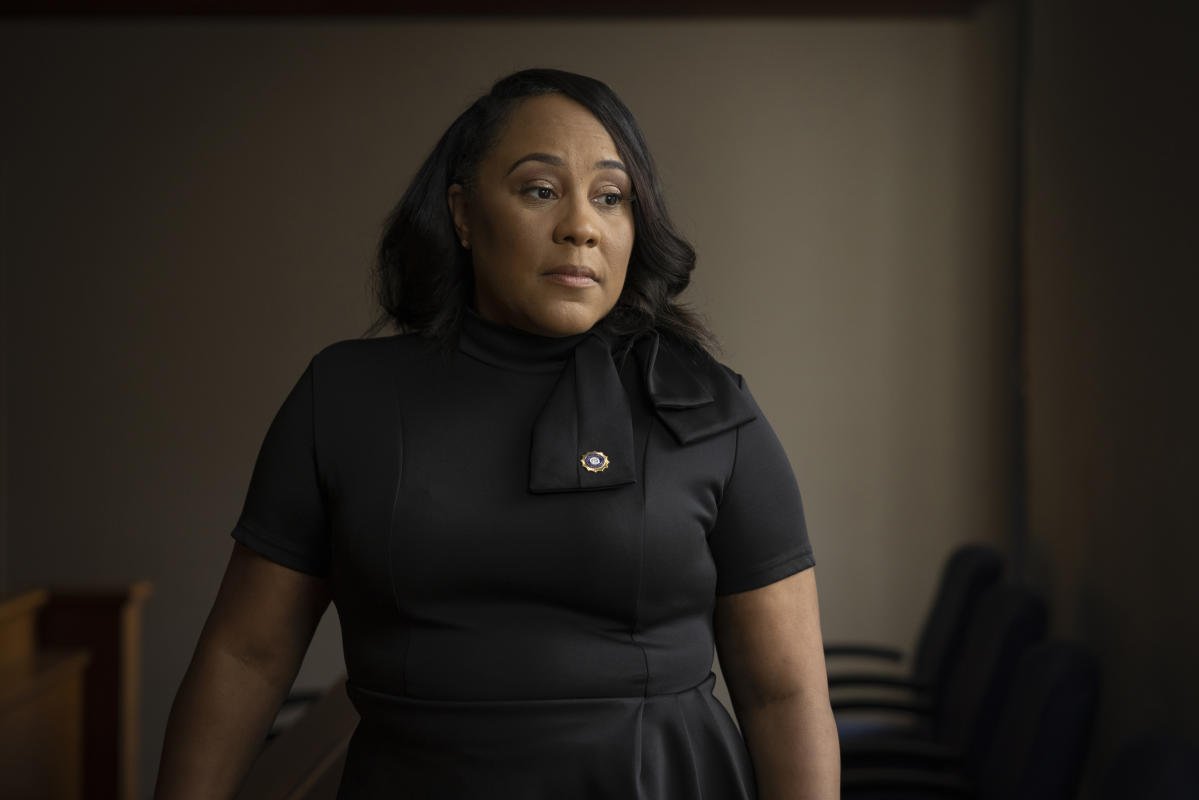As Americans digested a Texas judge’s ruling on Friday night invalidating the Food and Drug Administration’s approval of the abortion drug mifepristone — and a contradictory ruling from a judge in Washington state ordering the FDA to maintain its approval as is in some states — the divide in political reactions was as much between words and silence as it was between pro- and anti-abortion rights.
National Democratic officials reacted with a torrent of statements condemning the Texas judge, Matthew Kacsmaryk, for seeking to remove from the market a drug that women have safely used for more than two decades.
Many Democratic and abortion-rights leaders made it clear that the Texas ruling had not, for the time being, cut off women’s access to the medication. But they also used the moment to denounce Republicans — a recognition that Democrats have won recent elections by tapping into voters’ fury over the loss of abortion rights.
Sign up for The Morning newsletter from the New York Times
Republican officials were relatively quiet on the rulings Friday night, and talked about almost anything else on social media: transgender athletes, China, fentanyl and Israel. Many, including Gov. Ron DeSantis of Florida, tweeted in recognition of Good Friday.
Sen. Cindy Hyde-Smith, R-Miss., was an exception, writing on Twitter that the abortion ruling was “a victory for pregnant mothers & their unborn children.”
Democratic senators and representatives called the ruling “outrageous,” “extreme” and “devastating.” Several Democratic governors, including Gavin Newsom of California, Gretchen Whitmer of Michigan and Kathy Hochul of New York, vowed to keep abortion legal and accessible in their states, without going into detail on how.
“The Extreme MAGA Republican assault on abortion care is spreading across America like a malignant tumor,” Rep. Hakeem Jeffries, D-N.Y., the House minority leader, wrote on Twitter.
“Let’s be clear: Abortion bans have become the definitive litmus test of the 2024 GOP primary,” Jaime Harrison, chair of the Democratic National Committee, tweeted.
The response from those who oppose abortion fell largely to the Alliance Defending Freedom, the right-wing group that led the Texas lawsuit, and to advocacy groups that are pushing Republicans to enact further restrictions.
“This is a significant victory for the doctors and medical associations we represent and, more importantly, the health and safety of women and girls,” Erik Baptist, a lawyer for the Alliance Defending Freedom, told reporters Friday evening, adding that he could not comment on the Washington ruling because he had not read it yet.
Jeanne Mancini, president of March for Life, which opposes abortion, called the ruling “a major step forward for women and girls whose health and safety have been jeopardized for decades by the FDA’s rushed, flawed and politicized approval of these dangerous drugs.”
There is robust scientific evidence that mifepristone is safe.
Katie Glenn, state policy director for Susan B. Anthony Pro-Life America, similarly called the ruling “a win for the health and safety of women and girls.” She called the Washington case “concerning.”
Alexis McGill Johnson, president and chief executive of Planned Parenthood, which provides abortions and lobbies for abortion rights, emphasized that access to mifepristone would not immediately change.
“But we should all be enraged that one judge can unilaterally reject medical evidence and overrule the FDA’s approval of a medication that has been safely and effectively used for more than two decades,” McGill Johnson said, arguing that the ruling “exposes the weaponization of our judicial system to further restrict abortion nationwide” and that it “could threaten the FDA’s role in this country’s public health system.”
Attorney General Lynn Fitch of Mississippi, who led a coalition of Republican attorneys general who wrote a brief supporting the Texas lawsuit, praised the ruling in a Twitter post.
Democratic governors and attorneys general condemned the ruling without, for the most part, promising specific actions.
In a statement, the co-chairs of the Democratic Attorneys General Association, Kathy Jennings of Delaware and Aaron Ford of Nevada, said: “While there are still unknown elements and effects of these rulings, rest assured: Democratic attorneys general will be on the front lines of the fight to protect abortion access in every corner of our country.”
Gov. Jay Inslee of Washington, a Democrat, offered a specific plan earlier this week. On Tuesday — with Kacsmaryk’s ruling expected any day — he announced that his state had purchased 30,000 doses of mifepristone in what he called an “insurance policy.”
Combined with another 10,000 doses that the state had asked the University of Washington to purchase, the stockpile is a four-year supply.
The state went through the Department of Corrections, using its pharmacy license, rather than the Department of Health, Inslee said, because existing laws and rules made it easier to buy the medication that way.
In an interview Friday night, Inslee said he was confident that even if the Texas order were upheld, and even if the Washington ruling were overturned, “we have the right under our state law to dispense the product. Not all states have state laws that allow that; ours do.”
Asked what advice he was giving clinics or providers who might have been confused by the dual rulings Friday, he said: “They should make medical decisions. They should continue to give advice to women and their patients, just as they did before this decision out of Texas.”
c.2023 The New York Times Company








